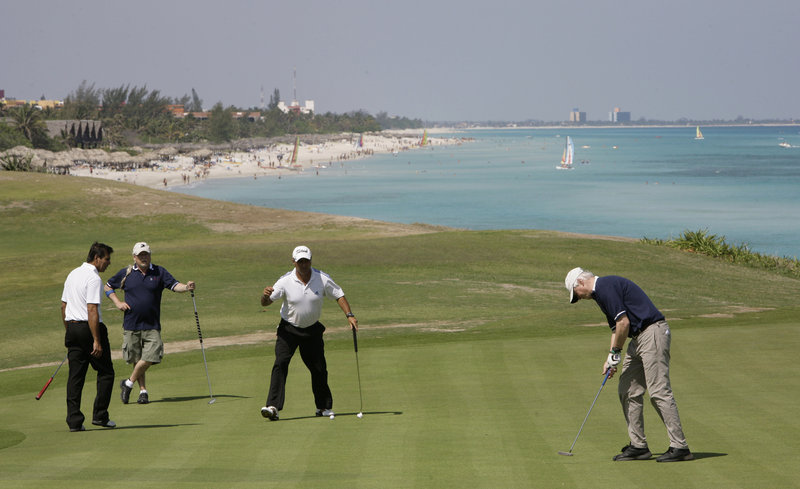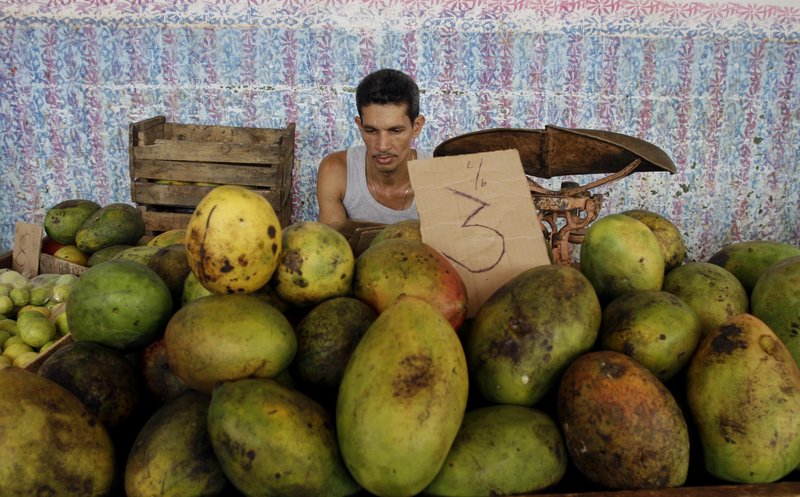HAVANA – Cuba has issued a pair of surprising free-market decrees, allowing foreign investors to lease government land for up to 99 years — potentially touching off a golf-course building boom — and loosening state controls on commerce to let islanders grow and sell their own fruit and vegetables.
The moves, published into law in the Official Gazette on Thursday and Friday and effective immediately, are significant steps as President Raul Castro promises to scale back the communist state’s control of the economy while attempting to generate new revenue for a government short on cash.
“These are part of the opening that the government wants to make given the country’s situation,” said Oscar Espinosa Chepe, a state-trained economist who is now an anti-communist dissident.
Cuba said it was modifying its property laws “with the aim of amplifying and facilitating” foreign investment in tourism, and that doing so would provide “better security and guarantees to the foreign investor.”
Investors in Canada, Europe and Asia have been waiting to crack the market for long-term tourism in Cuba, built on drawing well-heeled visitors who could live part-time on the island instead of just hitting the beach for a few days.
It may also help the country embrace golf tourism. Investment firms have for decades proposed building lavish 18-hole courses ringed by luxury housing under long-term government leases. Cuba currently has just two golf courses nationwide, but the Tourism Ministry has said it wants to build at least 10 more.
Endorsing 99-year property agreements also makes it easy to imagine a Cuban coastline dotted with timeshares, luxury villas and other hideaways that could serve as second homes.
“I think this is huge. This is probably one of the most significant moves in recent years relative to attracting foreign investment,” said Robin Conors, CEO of Vancouver-based Leisure Canada, which plans to begin construction next year on a luxury hotel in Havana and also wants to build hotels, villas and two championship golf courses.
Cuba has allowed leases of state land for up to 50 years with the option to extend them for an additional 25, but foreign investors had long pressed tourism officials to endorse 99-year deals to provide additional peace of mind to investors. The longer leases also mean lower interest rates on international mortgages.
Developers cheered the move, including Andrew Macdonald, CEO of Britain’s Esencia Hotels and Resorts, which is awaiting Cuban government approval to start construction on a $300 million beach development outside the resort of Varadero.
“It’s exceedingly good news,” Macdonald said. “It’s been a long road.”The decree allowing expanded sale of farm products, meanwhile, could have far greater impact on ordinary Cubans. It authorizes them to produce their own agricultural goods and sell them from home or in kiosks. They must pay taxes on any earnings.
Cubans already sell produce on the sides of highways, fleeing into the bushes when the police happen past. Friday’s measure would legalize such practices, while ensuring the state takes a cut of the profits.
Send questions/comments to the editors.




Success. Please wait for the page to reload. If the page does not reload within 5 seconds, please refresh the page.
Enter your email and password to access comments.
Hi, to comment on stories you must . This profile is in addition to your subscription and website login.
Already have a commenting profile? .
Invalid username/password.
Please check your email to confirm and complete your registration.
Only subscribers are eligible to post comments. Please subscribe or login first for digital access. Here’s why.
Use the form below to reset your password. When you've submitted your account email, we will send an email with a reset code.